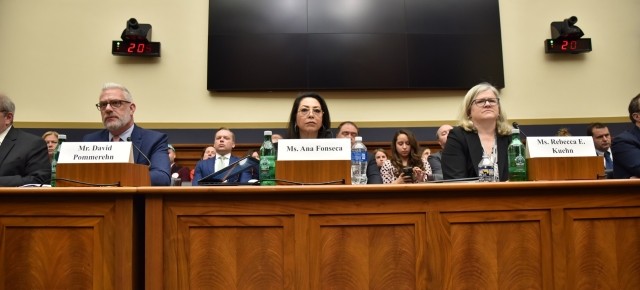CFPB overregulation shifts credit union resources away from members
The CFPB shift away from its statutory consumer protection mission to instead pursuing a politicized agenda has brought real-life consequences for the consumers it should be protecting. Ana Fonseca, president/CEO of Logix Federal Credit Union, shared that message during her testimony on behalf of America’s Credit Unions before the House Financial Services subcommittee on financial institutions Wednesday.
These consequences include overly burdensome requirements for institutions that cross the $10 billion asset threshold, which means they are subject to additional CFPB supervision.
Fonseca, who said Logix expects to cross the $10 billion asset threshold next year, shared the credit union has spent nearly five years preparing, including close to $1 million in additional costs in examination preparation, compliance software, and legal and audit services. She also noted an expected 30-person increase in compliance staff, costing an extra $3.3 million per year.
“We’ve been very focused on preparing for CFPB oversight and also concerned about (regulated) programs our members want being classified as ‘junk fees,’ so we’re spending way too much time on that and not enough time innovating on products and services for our members,” she said.
Her testimony contains a series of legislative changes America’s Credit Unions recommends to ensure the CFPB is focused on its primary mission, including:
- Moving the leadership to a bipartisan commission;
- Increasing Congressional oversight of the CFPB;
- Providing greater clarity on unfair, deceptive, or abusive acts or practices (UDAAP);
- Expanding and clarifying exemptions for credit unions from the CFPB;
- Increasing CFPB usage of cost-benefit analysis and Small Business Regulatory Enforcement Fairness Act panels; and
- Reforming the Civil Investigative Demand (CID) process
The hearing also discussed several bills and draft legislation that would accomplish these priorities. This includes placing the bureau under appropriations, reining in UDAAP authority, repealing the CFPB’s medical debt final rule, putting a multi-member commission in charge of the CFPB, and requiring cost-benefit analyses for rulemakings.
Several committee members shared their support for these priorities, including Rep. Scott Fitzgerald, R-Wis., who introduced the Making the CFPB Accountable to Small Businesses Act (H.R. 1606) earlier this year.
“While consumer protection is critical, the regulations are overly burdensome, poorly analyzed, and they can reduce access to financial products, and that’s been the issue since the CFPB came into existence,” he said.
Rep. Bill Huizinga, R-Mich., said, “A single director who has no accountability, no boundaries, and limitless funding will go and push the accepted and legal bounds of their organization is a recipe for disaster, which is why I think we’ve seen this one agency challenged so much over the course of its own existence.”
